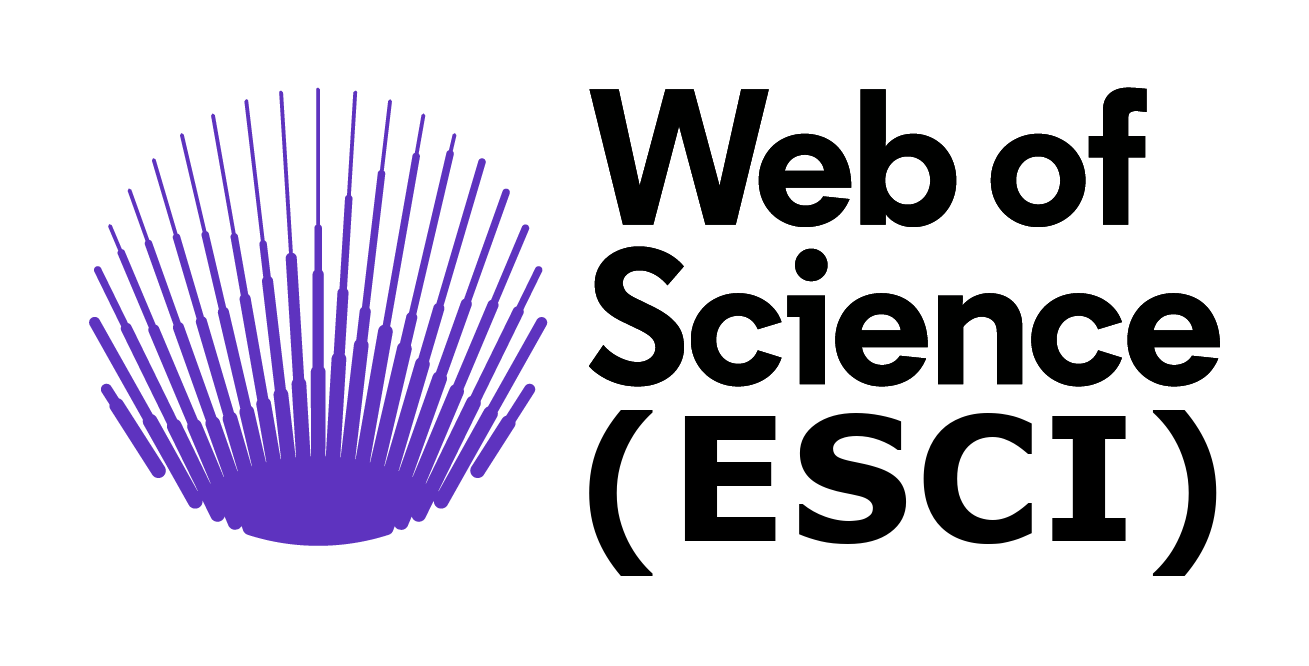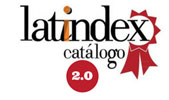Una ontología de contexto para un sistema de recomendación móvil de anuncios publicitarios
DOI:
https://doi.org/10.29019/enfoqueute.v9n3.327Palabras clave:
computación ubicua, sensibilidad al contexto, ontología, sistema de recomendación, anuncio publicitarioResumen
Actualmente la mayoría de los sistemas de recomendación no consideran el contexto en el que se ejecutan, siendo inapropiados al funcionar en dispositivos móviles, esto se puede observar en la difusión de anuncios publicitarios, donde los usuarios se ven abrumados por la excesiva información que reciben, provocando insatisfacciones generalizadas en su uso. Uno de los mayores desafíos para incorporar la información contextual al software es el diseño de un modelo formal para su representación, debido a que los métodos tradicionales son inadecuados para este fin, siendo necesario utilizar enfoques alternativos como los basados en ontologías. Este trabajo describe el proceso utilizado en la construcción de una ontología para representar la información de los anuncios publicitarios y de las dimensiones contextuales: ubicación, tiempo y necesidades del usuario, para considerar al momento de su recomendación. Mediante la aplicación de la metodología NeOn se obtuvo como resultado un modelo ontológico expresivo y extensible que integra las ontologías: FOAF, OWL-Time y WGS84 Geo Positioning. La ontología propuesta es un aporte inicial para la creación de un sistema de recomendación móvil sensible al contexto de anuncios publicitarios.
Metrics
Descargas
Citas
Chen, H., Finin, T., & Joshi, A. (2003). An ontology for context-aware pervasive computing environments. The Knowledge Engineering Review, 18(3), 197-207. http://dx.doi.org/10.1017/S0269888904000025.
Chen, H., Perich, F., Finin, T., & Joshi, A. (2004). SOUPA: Standard ontology for ubiquitous and pervasive applications. In Mobile and Ubiquitous Systems: Networking and Services, MOBIQUITOUS 2004, IEEE, Boston, USA, p. 258-267. http://dx.doi.org/10.1109/MOBIQ.2004.1331732.
De Paiva, F. A., Costa, J. A., Silva, C. R., & França, R. S. (2013). Arquitetura de um Sistema de Recomendação Baseado em Ontologia para Anúncios de Carros. In ONTOBRAS, p. 173-178.
Espinoza-Mejía, M., & Saquicela, V. (2014). Modelando los hábitos de consumo televisivo usando tecnología semántica. In Congreso de Ciencia y Tecnología ESPE, 9(1), 215-224.
Grüninger, M., & Fox, M. (1995). Methodology for the design and evaluation of ontologies. In International Joint Conference on Artificial Inteligence, IJCAI95, Workshop on Basic Ontological Issues in Knowledge Sharing.
Jang, Y., Lee, T., Kim, K., Lee, W., Ann, D., & Chung, S. (2007). Keyword Management System based on Ontology for Contextual Advertising. In Advanced Language Processing and Web Information Technology, ALPIT 2007, IEEE, Luoyang, Henan, China, p. 440-445. http://dx.doi.org/10.1109/ALPIT.2007.98
Kagal, L., Finin, T., & Joshi, A. (2003). A policy based approach to security for the semantic web. In International semantic web conference, ISWC 2003, Springer, Berlin, Heidelberg, p. 402-418. http://dx.doi.org/10.1007/978-3-540-39718-2_26.
Kim, J., & Kang, S. (2013). An ontology-based personalized target advertisement system on interactive TV. Multimedia tools and applications, 64(3), 517-534. http://dx.doi.org/10.1007/s11042-011-0965-0.
Kim, K. J., Ahn, H., & Jeong, S. (2010). Context-aware recommender systems using data mining techniques. In Proceedings of world academy of science, engineering and technology, p. 357-362.
Lenat, D. B., & Guha, R. V. (1993). Building large knowledge-based systems: Representation and inference in the CYC project. Artificial Intelligence, Elsevier Science Publishers B.V., 61(1), 95-104.
Moore, P., Hu, B. Z., Campbell, W., & Ratcliffe, M. (2007). A survey of context modeling for pervasive cooperative learning. In Information Technologies and Applications in Education 200, ISITAE '07, IEEE, Kunming, China, p. k5-1 - k5-6. http://dx.doi.org/10.1109/ISITAE.2007.4409367.
OGC. (2018). GeoSPARQL - A Geographic Query Language for RDF Data. Recuperado de http://www.opengeospatial.org/standards/geosparql (accedido el 10/04/2018)
Pan, F., & Hobbs, J. R. (2004). Time in OWL-S. In Proceedings of AAAI Spring Symposium on Semantic Web Services, p. 29-36.
Perich, F. (2004). Mogatu BDI ontology. University of Maryland, Baltimore County.
Poveda-Villalón, M., Suárez-Figueroa, M. C., & García-Castro, R. (2010). A context ontology for mobile environments. In Workshop on Context, Information and Ontologies - CIAO 2010 Co-located with EKAW 2010, Lisbon, Portugal. ISBN ISSN: 1613-0073.
Preuveneers, D., Van den Bergh, J., Wagelaar, D., Georges, A., Rigole, P., Clerckx, T., De Bosschere, K. (2004). Towards an extensible context ontology for Ambient Intelligence. In European Symposium on Ambient Intelligence, EUSAI 2004, Springer, Berlin, Heidelberg, p. 148-159. http://dx.doi.org/10.1007/978-3-540-30473-9_15.
Rodríguez-Hernández, M. d., & Ilarri, S. (2014). Towards a context-aware mobile recommendation architecture. In International Conference on Mobile Web and Information Systems, MobiWIS 2014, Springer, Cham, p. 56-70. http://dx.doi.org/10.1007/978-3-319-10359-4_5.
Strang, T., & Linnhoff-Popien, C. (2004). A context modeling survey. In First International Workshop on Advanced Context Modelling, Reasoning and Management, UbiComp 2004, Nottingham, England.
Suarez-Figueroa, M. C. (2013). NeOn Methodology for Building Ontology Networks: Specification, Scheduling and Reuse. Tesis (Doctoral), Facultad de Informática, Universidad Politécnica de Madrid.
Suárez-Figueroa, M. C., Gómez-Pérez, A. & Villazón-Terrazas, B. (2009). How to write and use the ontology requirements specification document. In Proceedings of the Confederated International Conferences, CoopIS, DOA, IS, and ODBASE 2009 on the Move to Meaningful Internet Systems: Part II, ser. OTM ’09, Springer, Berlin, Heidelberg, p. 966-982, http://dx.doi.org/10.1007/978-3-642-05151-7_16.
W3C. (2008). SPARQL Lenguaje de consulta para RDF. Recuperado de http://skos.um.es/TR/rdf-sparql-query/ (accedido el 10/04/2018).
W3C. (2017). Time Ontology in OWL. Recuperado de https://www.w3.org/TR/owl-time/ (accedido el 04/04/2018).
W3C Semantic Web Interest Group. (2009). Basic Geo (WGS84 lat/long) vocabulary. Obtenido de https://www.w3.org/2003/01/geo/ (accedido el 04/04/2018).
Wang, X., Zhang, D., Gu, T., & Pung, H. (2004). Ontology based context modeling and reasoning using OWL. In Pervasive Computing and Communications Workshops, IEEE, Orlando, USA, p.18-22, http://dx.doi.org/10.1109/PERCOMW.2004.1276898.
Weiser, M. (1991). The Computer for the 21st Century. Scientific American, p. 94-100.
Weiser, M., & Brown, J. S. (1997). The coming age of calm technolgy. In Beyond calculation, Springer, New York, USA, p. 75-85. http://dx.doi.org/10.1007/978-1-4612-0685-9_6.
Xu, N., Zhang, W., Yang, H., Zhang, X., & Xing, X. (2013). CACOnt: A ontology-based model for context modeling and reasoning. In Applied Mechanics and Materials, p. 2304-2310. http://dx.doi.org/10.4028/www.scientific.net/AMM.347-350.2304.
Publicado
Cómo citar
Número
Sección
Los artículos e investigaciones publicadas por la Universidad UTE, se realizan en régimen de Acceso Abierto [Open Access] en formato electrónico. Al enviar un artículo a cualquiera de las revistas científicas de la Universidad UTE, el o los autores aceptan estas condiciones.
La UTE aplica la licencia Creative Commons Attribution (CC-BY) a los artículos de sus revistas científicas. En virtud de esta licencia de acceso abierto, como autor usted acuerda que cualquier persona puede reutilizar su artículo en su totalidad o en parte para cualquier propósito, de forma gratuita, incluso para fines comerciales. Cualquiera puede copiar, distribuir o reutilizar el contenido siempre y cuando el autor y la fuente original estén correctamente citados. Esto facilita la libertad de reutilización y también asegura que el contenido pueda ser extraído sin barreras para necesidades de investigación.
Esta obra está bajo una Creative Commons Attribution 3.0 International (CC BY 3.0).
Además, la Revista Enfoque UTE garantiza y declara que los autores conservan siempre todos los derechos de autor y de publicación de sus obras originales sin restricciones [© Los Autores]. El reconocimiento (BY) permite cualquier explotación de la obra, incluyendo una finalidad comercial, así como la creación de obras derivadas, la distribución de las cuales también está permitida sin ninguna restricción.























 Enfoque UTE - Facultad de Ciencias de la Ingeniería e Industrias - Universidad UTE
Enfoque UTE - Facultad de Ciencias de la Ingeniería e Industrias - Universidad UTE